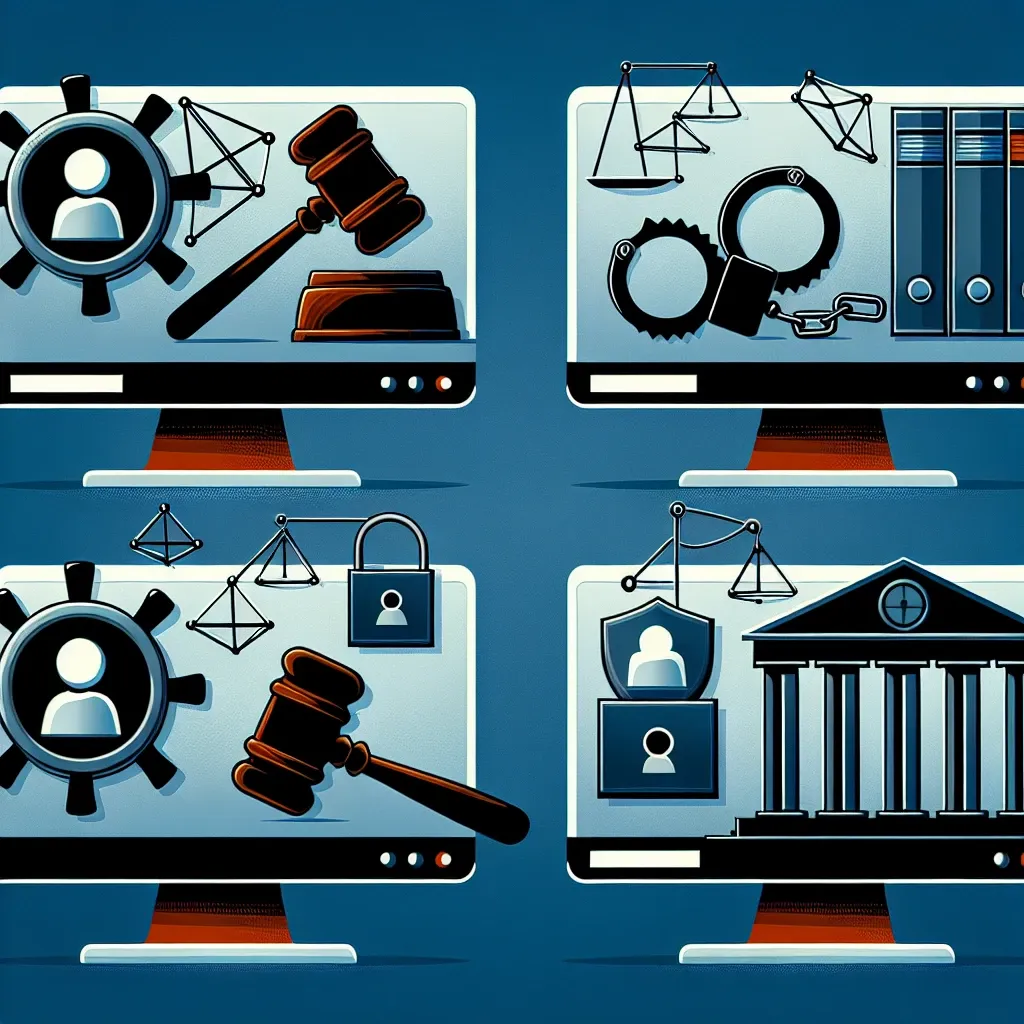Four Google Searches That Could Lead to Legal Trouble

In the vast digital landscape, Google serves as the primary gateway for information. However, not every search is benign. Some queries can lead to serious legal consequences. In this article, we will explore four Google searches that could land you in legal trouble, providing insights into the risks and potential repercussions of these actions.
1. Downloading or Streaming Pirated Content
Piracy has been a long-standing issue in the digital age. Searching for and downloading pirated content, such as movies, music, and software, is a common activity for many internet users. However, this seemingly harmless act can have severe legal ramifications. The Copyright Act, which varies by country, strictly prohibits the unauthorized distribution and reproduction of copyrighted material.
Legal Consequences: Engaging in piracy can result in hefty fines, legal notices, and in extreme cases, criminal charges. For instance, in the United States, the Digital Millennium Copyright Act (DMCA) imposes penalties that can include up to five years in prison and fines of up to $250,000 for first-time offenders.
Real-World Example: In 2019, a British man was sentenced to four years in prison for running a website that facilitated the sharing of pirated movies and TV shows. This case highlights the serious nature of piracy and the harsh punishments that can be imposed.
2. Researching How to Commit Crimes
The internet is a double-edged sword. While it offers a wealth of information, it also provides access to content that can be misused. Searching for instructions on how to commit crimes, such as hacking, fraud, or physical assaults, is not only alarming but also illegal.
Legal Consequences: Under the U.S. Code, 18 U.S.C. § 1030, accessing a computer with the intent to commit a crime is considered a federal offense. Similarly, in the UK, the Computer Misuse Act 1990 criminalizes unauthorized access to computer systems. Engaging in these activities can lead to imprisonment, heavy fines, and a permanent criminal record.
Real-World Example: In 2017, a teenager in the United States was arrested for hacking into a school district’s computer system. The incident led to a thorough investigation, and the teen was charged with multiple counts of computer fraud and abuse.
3. Searching for and Sharing Child Exploitation Material
One of the most serious and reprehensible crimes in the digital realm is the search for and sharing of child exploitation material. This type of content is illegal and morally reprehensible, and the consequences for possessing or distributing it are severe.
Legal Consequences: In the United States, the possession of child exploitation material is a federal offense under 18 U.S.C. § 2252. Offenders can face up to 20 years in prison and substantial fines. In addition, they may be required to register as sex offenders, which can have lifelong consequences.
Real-World Example: In 2018, a man in Australia was sentenced to 25 years in prison for possessing and sharing child exploitation material. The case garnered significant media attention and highlighted the zero-tolerance approach taken by law enforcement agencies worldwide.
4. Seeking to Purchase or Sell Illegal Substances
The dark web is a notorious haven for illegal activities, including the sale and purchase of drugs, weapons, and other contraband. While not all such transactions originate from Google searches, the initial query can lead users down a dangerous path.
Legal Consequences: The sale and possession of illegal substances are strictly regulated. In the United States, the Controlled Substances Act (CSA) categorizes drugs into schedules based on their potential for abuse and medical use. Engaging in illegal drug activities can result in severe penalties, including long-term imprisonment and substantial fines.
Real-World Example: In 2013, the takedown of the Silk Road, a dark web marketplace for illegal drugs, led to the arrest of its founder, Ross Ulbricht. He was sentenced to life in prison without the possibility of parole, emphasizing the serious nature of such crimes.
Conclusion
While the internet offers unparalleled access to information, it is crucial to use this power responsibly. Engaging in searches that lead to illegal activities can have severe and long-lasting consequences. By understanding the risks and legal implications, internet users can navigate the digital world safely and ethically. Always remember, the choices you make online can have real-world consequences.
FAQs
- Is it illegal to search for pirated content? Yes, searching for and downloading pirated content is illegal and can result in fines and legal action.
- What are the penalties for accessing illegal content? Penalties vary by jurisdiction but can include fines, imprisonment, and a permanent criminal record.
- Can searching for how to commit a crime be illegal? Yes, researching and attempting to commit crimes are illegal and can lead to serious legal consequences.
- What should I do if I accidentally come across illegal content? If you accidentally encounter illegal content, close the page immediately and report it to the appropriate authorities.
- Is it legal to buy and sell on the dark web? No, the sale and purchase of illegal substances and other contraband on the dark web are illegal and can result in severe penalties.
By staying informed and making responsible choices, you can enjoy the benefits of the internet while avoiding the pitfalls that can lead to legal trouble.
